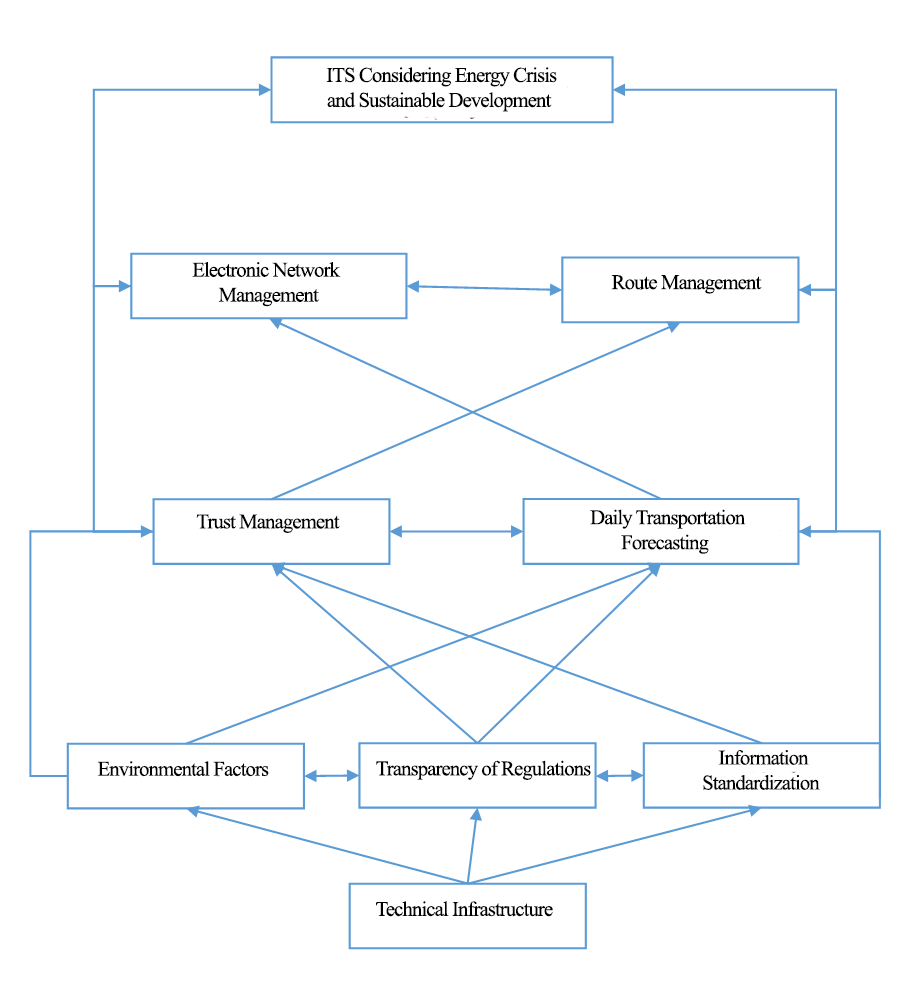Presenting a Model of Intelligent Transportation Systems Considering the Energy Crisis and Sustainable Development
Keywords:
Intelligent Transportation System, Energy Crisis, Sustainable DevelopmentAbstract
The objective of this research was to identify and evaluate the model of intelligent transportation systems considering the energy crisis and sustainable development. The research was conducted in an exploratory and survey-based manner. In the qualitative section, the Delphi method was employed, while in the quantitative section, the Interpretive Structural Modeling (ISM) and Structural Equation Modeling (SEM) methods were used. In the qualitative section, as well as in the ISM method, the target population consisted of managers and experts in the field of transportation, from which 15 individuals were selected using the purposive sampling technique. The influential components of the model were identified through a literature review technique. First, the identified components were filtered and assessed using the Delphi technique. Subsequently, modeling was conducted using the Delphi method and ISM. The software used for this purpose included EXCEL and MICMAC. The quantitative population consisted of an unlimited number of employees from transportation companies, with 384 individuals selected as the sample based on Cochran's formula. Data analysis was performed using coding and path analysis based on a researcher-made questionnaire and qualitative analysis. To fit the proposed model, the structural equation modeling technique in SMARTPLS software was employed. According to the Delphi technique, the identified categories included: electronic network management, route management, environmental factors, transparency of regulations, trust management, technical infrastructure, information standardization, and daily transportation forecasting. These, along with the main research component, were analyzed by experts. Based on the interpretive structural model, a five-level model was identified.












